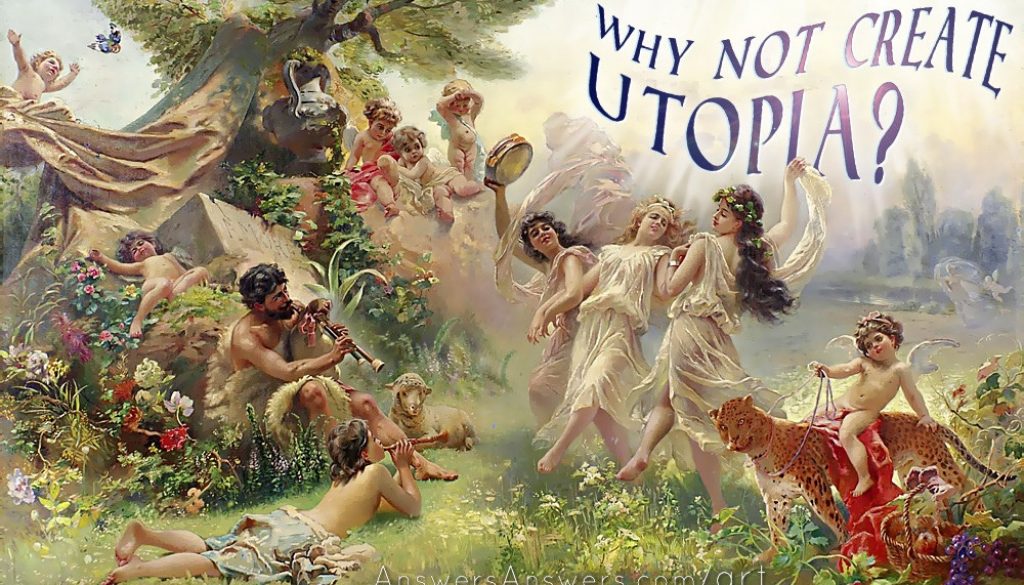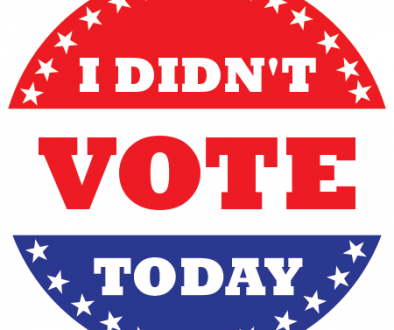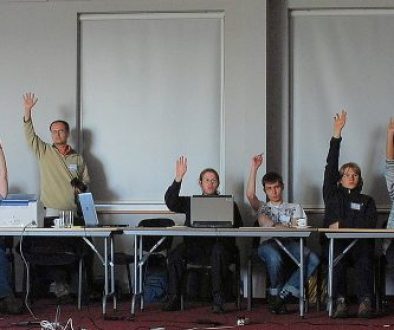Utopian ideals can not be forced

Just about everyone has an of idea of what an “ideal society” would look like. Common themes might include no poverty, no conflict, and everyone’s needs being met. The nearly universal desire for such results demonstrates a hallmark of good in humanity.
Conflict among individuals and groups arises, however, when these individual ideals of an optimal world are forced upon others. It is one thing to say “I’d prefer if no one consumed tequila”, but quite another thing to advocate for the imprisonment of everyone who consumes tequila.
In every election for public office, voting participants are not voicing their opinion on how they would like to society move; instead voters on all sides are pushing for their version of “the way things should be” to be forced upon others. In fact, we’ve come so accustomed to relying on this process to solve our problems that the initial urge in almost every case is to seek a coercive solution, rather than a voluntary one. With the tequila example, a vote for a sheriff or commissioner who promises to outlaw tequila is not a passive gesture; it’s a vote in support of violently throwing your tequila-drinking neighbors into cages.
So, the next time we think about how things should be, we’d do well to remember that others might have different ideas on the topic. Rather than supporting a system where the strongest group’s ideas are forced upon the weaker group, consider that the best way forward might be rely upon consensus and voluntary interaction instead.
Utopia may not be possible, but the opposite is guaranteed when anyone forces their will upon another.




October 3, 2018 @ 1:21 am
It is interesting how the use of force is often the default mode our society operates within. I wonder if this is because we as a society have not learned to argue properly. Perhaps voluntary interaction requires more energy or thought to accomplish one’s desires. Perhaps more intellect or charisma is required to achieve one’s goals.
Utopia sounds nice. Could there be a way to get there voluntarily? How much unlearning would be required to get there?
October 3, 2018 @ 3:19 am
By default, human beings are good at avoiding conflict. The vast majority of us move through countless interactions, day after day, with statistically nominal amounts of violence or aggression. Millions of purchases, contracts, agreements and exchanges take place, all guided by protocols based on peaceful cooperation rather than coercion. However in those areas of life over which government claims ultimate control, the natural social guidelines for maintaining order are thrown out the window, replaced by the State’s monopoly on law and justice. Therefore instead of relying on a peaceful solution to conflict, the default becomes relying on the government solve interpersonal problems. Unfortunately, government solutions lack the subtle tools of negotiation, cooperation, and thoughtful mediation; they consist of threats of violence and imprisonment.